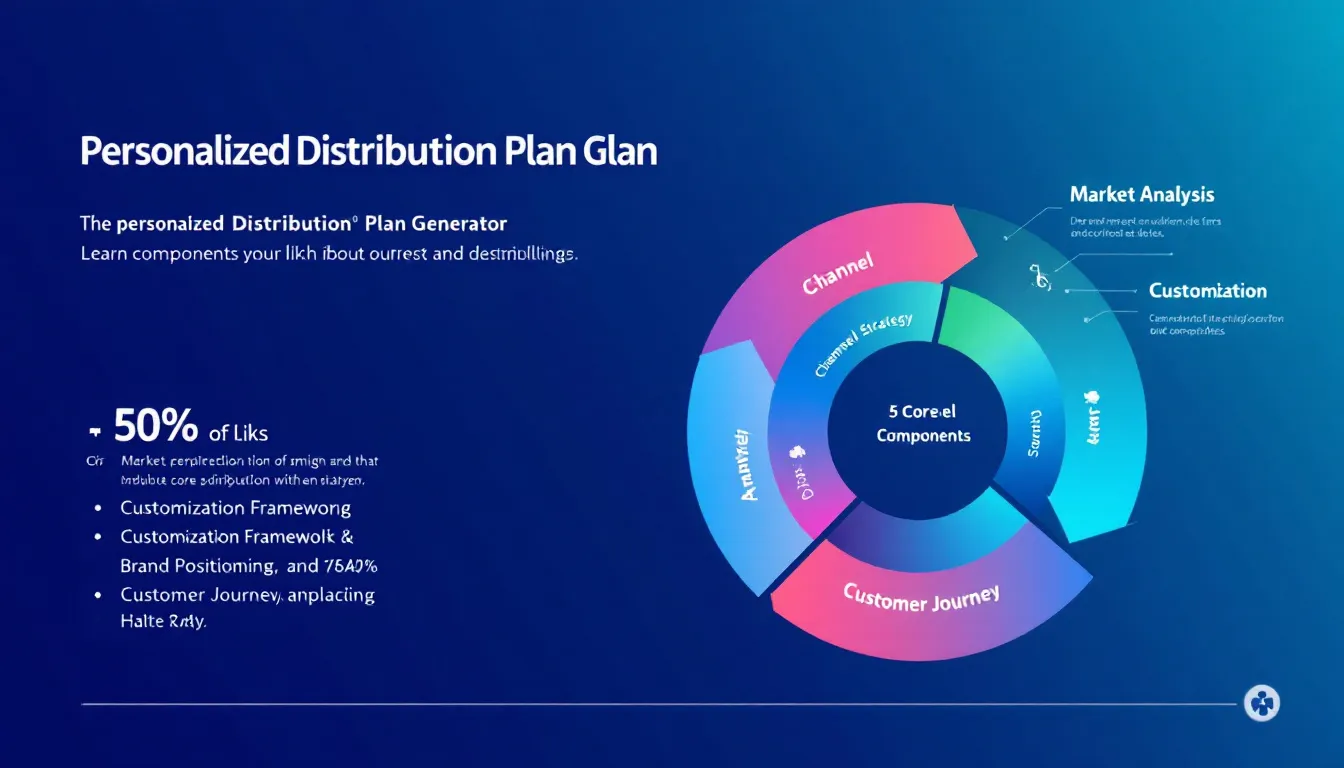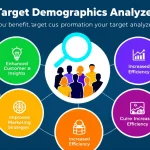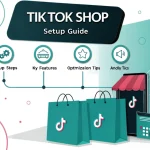Is this tool helpful?
How to Use the Personalized Distribution Plan Generator Effectively
To create a customized distribution plan using this tool, follow these step-by-step instructions:
- Product Type: Enter specific details about your product category. Example 1: “Premium artisanal coffee beans sourced from small-batch roasters.” Example 2: “Custom-designed athletic footwear with orthopedic features.”
- Target Market: Define your audience demographics and characteristics. Example 1: “Health-conscious urban professionals, ages 30-45, with disposable income above $75,000.” Example 2: “Athletic enthusiasts and amateur athletes aged 20-40 seeking performance enhancement.”
- Brand Differentiators: List your unique selling propositions and competitive advantages. Focus on specific features that set your product apart.
- Customization Options: Detail available personalization features. While optional, this field enhances plan specificity.
- Distribution Channels: Specify preferred distribution methods that align with your target market and brand positioning.
Understanding the Distribution Plan Generator
This advanced tool creates tailored distribution strategies that emphasize personalization and market differentiation. It combines modern distribution theory with customization principles to generate actionable plans for diverse product categories.
Core Components of Distribution Planning
- Market Analysis Integration
- Channel Strategy Development
- Customization Framework Design
- Brand Positioning Elements
- Customer Journey Mapping
Benefits of Using the Distribution Plan Generator
Strategic Advantages
- Data-driven decision making for channel selection
- Improved market penetration strategies
- Enhanced customer experience through personalization
- Optimized resource allocation
- Competitive differentiation opportunities
Operational Benefits
- Streamlined distribution process design
- Reduced planning time and resources
- Increased efficiency in market entry
- Better alignment of distribution with brand values
Addressing Market Challenges and Solutions
Market Entry Optimization
The tool addresses specific market entry challenges through personalized channel selection and positioning strategies. It considers:
- Market saturation levels
- Competition intensity
- Customer accessibility
- Brand alignment
Customization Strategy Development
The generator creates specialized approaches for:
- Product modification requirements
- Service customization opportunities
- Channel-specific adaptations
- Market-specific positioning
Practical Applications and Case Studies
Luxury Goods Sector Example
A high-end watchmaker utilized the tool to develop a distribution strategy emphasizing:
- Exclusive boutique partnerships
- Personal shopping experiences
- Custom fitting services
- Limited edition releases
Technology Product Case
A smart home device manufacturer implemented a plan focusing on:
- Direct-to-consumer online sales
- Specialized installer network
- Custom integration services
- Technical support infrastructure
Implementation Strategies
Channel Integration
Effective implementation requires careful consideration of:
- Channel partner selection criteria
- Integration timeline development
- Resource allocation planning
- Performance metric establishment
Customization Framework
The tool provides guidance for:
- Product modification processes
- Service customization protocols
- Customer preference integration
- Feedback loop establishment
Performance Monitoring and Optimization
Key Performance Indicators
- Market penetration rates
- Customer satisfaction metrics
- Channel efficiency measures
- Brand recognition indicators
Optimization Strategies
- Data-driven refinement processes
- Channel performance analysis
- Customer feedback integration
- Market response adaptation
Frequently Asked Questions
What types of businesses can benefit from this tool?
The Distribution Plan Generator is valuable for businesses across various sectors, including retail, manufacturing, technology, and services. It’s particularly effective for companies seeking to establish or improve their market presence through personalized distribution strategies.
How does the tool incorporate brand differentiation?
The generator analyzes your unique selling propositions and brand differentiators to create distribution strategies that emphasize these elements across all chosen channels, ensuring consistent brand messaging and positioning.
Can the plan be modified for different market segments?
Yes, the tool creates adaptable strategies that can be customized for different market segments while maintaining brand consistency and operational efficiency.
What role does customization play in the distribution strategy?
Customization is integrated at multiple levels, from product modifications to service delivery, ensuring that the distribution strategy aligns with customer preferences and market requirements.
How often should the distribution plan be updated?
Regular updates are recommended to reflect market changes, customer feedback, and business growth. The tool facilitates periodic strategy refinement based on performance metrics and market dynamics.
What makes the generator’s approach unique?
The tool’s unique value lies in its comprehensive integration of personalization, market analysis, and brand differentiation to create tailored distribution strategies that drive competitive advantage and market success.
How does the tool support international distribution?
The generator includes considerations for international market entry, cultural adaptation, and region-specific distribution requirements, making it valuable for global expansion strategies.
What implementation support does the tool provide?
The generated plan includes detailed implementation guidelines, timeline recommendations, and resource allocation suggestions to support successful strategy execution.
Important Disclaimer
The calculations, results, and content provided by our tools are not guaranteed to be accurate, complete, or reliable. Users are responsible for verifying and interpreting the results. Our content and tools may contain errors, biases, or inconsistencies. We reserve the right to save inputs and outputs from our tools for the purposes of error debugging, bias identification, and performance improvement. External companies providing AI models used in our tools may also save and process data in accordance with their own policies. By using our tools, you consent to this data collection and processing. We reserve the right to limit the usage of our tools based on current usability factors. By using our tools, you acknowledge that you have read, understood, and agreed to this disclaimer. You accept the inherent risks and limitations associated with the use of our tools and services.







